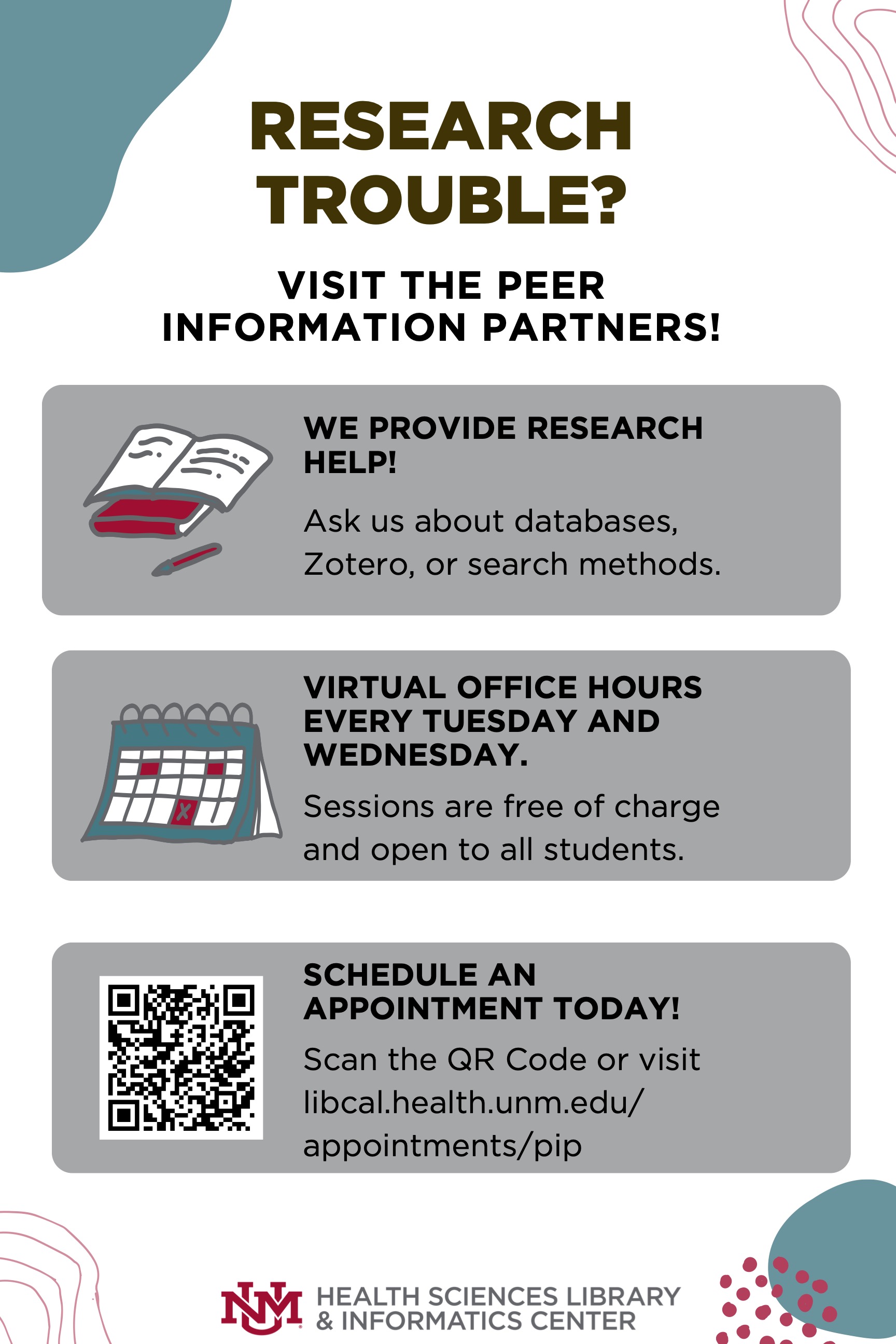Learning all the ins and outs of research methods and databases available at a health sciences library can be a difficult task for some students to overcome.
Last year, a couple of University of New Mexico College of Population Health students realized they could help students overcome that hurdle after librarians at the Health Sciences Library & Informatics Center (HSLIC) approached them with a capstone project opportunity – a student-led program called Peer Information Partners (PIP).
“We created the service to help students who are in need of research help,” said Zohie Cardenas, College of Population Health student and HSLIC employee. “During my office hours, I help students with any research needs they have, which can include learning how to use the databases HSLIC has, developing research questions, creating more effective search methods and citation help.”
Cardenas was more involved with implementing the program last fall rather than designing it, and she served as the first peer information partner.
We’re really hoping we’ll be able to help students create more effective search methods, so they’ll feel more confident doing research projects, whether they’re for personal projects or for schoolwork.
“We’re really hoping we’ll be able to help students create more effective search methods, so they’ll feel more confident doing research projects, whether they’re for personal projects or for schoolwork,” she said.
The project was based on similar successful programs from different institutions, such as the Peer Information Consulting program from the University of Michigan.
Requesting support can vary from learning how to utilize different search methods to using research tools such as Embase (a biomedical literature database), Zotero (an annotation and citation assistant), and PubMed (a database for biomedical and life science citations and abstracts).
Students can also learn about the services offered through HSLIC, including the virtual reality lab, a 3D printer, a virtual anatomy table, course reserves and Interlibrary Loans.
The program was designed to help foster inclusion through breaking down traditional power dynamics between library staff and students seeking advice. With peer-to-peer consultations, students can feel more comfortable asking questions.
“We thought maybe what was preventing students from getting research help was the hierarchy between librarians and students,” Cardenas said. “We thought if they had a peer-led program, they’d be more apt to actually asking for help when they need it and they would learn more from it because we’re going through similar projects.
The virtual sessions are always free of charge, and appointments can be scheduled online.
To meet with a Peer Information Partner, students must make an appointment. All appointments are available in 30-minute intervals and held remotely on Zoom. Once an appointment is booked, a Peer Information Partner will email a link to the Zoom meeting. Appointments do not need to be booked in advance, but students will need to submit an appointment form to receive the Zoom link.
“We’re available to all students who need help, whether their undergraduate or graduate students,” Cardenas said. “We just want to help people out with anything they need.”

